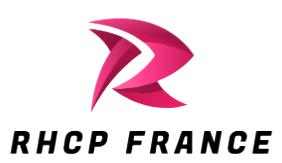Dyslexia testing services play a crucial role in the early identification and management of dyslexia, a learning disability that affects reading and language processing. These services are essential for diagnosing dyslexia accurately and implementing effective educational strategies to support individuals struggling with this condition. Dyslexia is characterized by difficulties with accurate and/or fluent word recognition and by poor spelling and decoding abilities, which can significantly impact academic performance and self-esteem. Effective testing services utilize a combination of comprehensive assessments to provide a clear understanding of an individual’s strengths and weaknesses. A thorough dyslexia evaluation typically involves several components, including cognitive and academic assessments. These tests measure various aspects of language processing, including phonological awareness, decoding skills, and reading fluency. Additionally, assessments may evaluate cognitive functions such as memory, attention, and processing speed, which are often interconnected with reading difficulties.
Educational psychologists or specialized educators usually conduct these assessments. They use standardized tests and diagnostic tools to gather detailed information about an individual’s reading abilities and learning patterns. The results from these assessments are analyzed to determine whether an individual meets the criteria for a dyslexia diagnosis. It is important that testing is conducted by professionals with expertise in dyslexia and learning disabilities to ensure that the results are reliable and valid. Once a diagnosis of dyslexia is confirmed, effective educational strategies can be developed to support the individual. This typically involves creating a personalized learning plan that addresses the specific needs identified through testing. For instance, educational interventions may include specialized reading programs that focus on phonics and decoding skills, as well as strategies to improve reading fluency and comprehension. Assistive technologies, such as text-to-speech software and audiobooks, can also be valuable tools in helping individuals with dyslexia succeed academically. Furthermore, ongoing monitoring and adjustment of the educational plan are essential to ensure that it remains effective as the individual progresses.
Regular follow-up assessments can help track improvements, identify any new challenges, and adjust strategies accordingly. Collaboration between educators, parents, and the individual is key to developing a supportive learning environment that fosters academic growth and builds self-confidence. In summary, educational resource associates dyslexia testing services are vital for the accurate diagnosis and effective management of dyslexia. By utilizing a comprehensive approach to assessment and tailoring educational strategies to the individual’s specific needs, these services help to address the unique challenges faced by those with dyslexia. Early identification and intervention are crucial for improving academic outcomes and supporting individuals in achieving their full potential. This multifaceted approach helps to rule out other potential causes for reading difficulties and ensures that the diagnosis is accurate. For example, a student preparing for standardized tests can benefit from a tutor who specializes in test preparation strategies, while another might need assistance with mastering particular topics within a subject.
